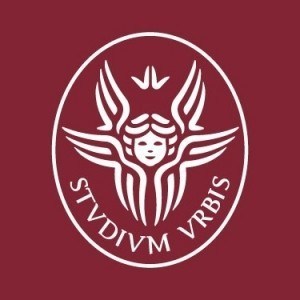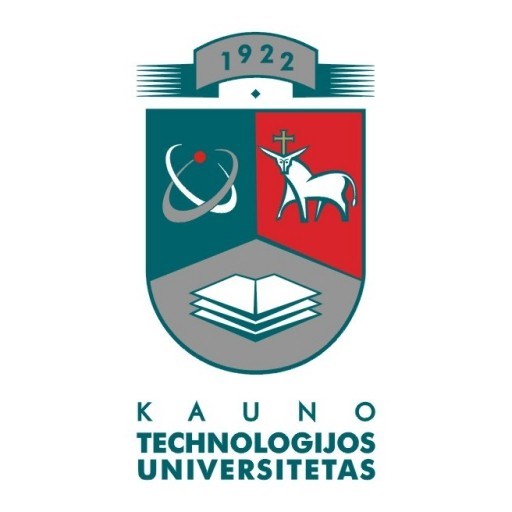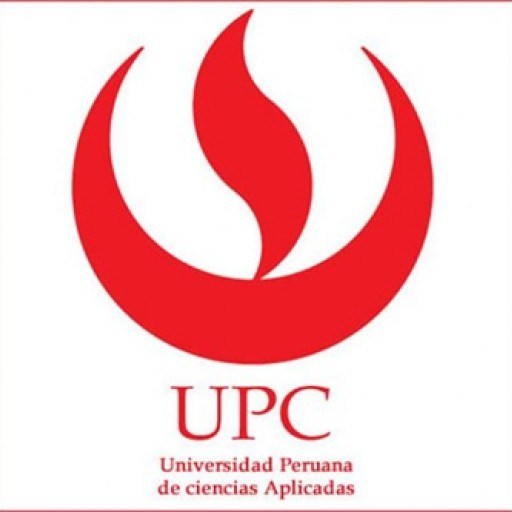Photos of university
The Department of Systems and Control Engineering at Tokyo Institute of Technology offers a comprehensive and innovative graduate program designed to equip students with the theoretical knowledge and practical skills necessary to address complex technological challenges in modern society. Our curriculum focuses on the core principles of systems engineering, control theory, automation, and information processing, providing students with a solid foundation to excel in research and industry applications. Students have the opportunity to engage in cutting-edge research in areas such as intelligent control systems, robotics, automation, signal processing, machine learning, and systems optimization. The program emphasizes interdisciplinary approaches, integrating concepts from electrical engineering, mechanical engineering, computer science, and applied mathematics to develop holistic solutions for real-world problems. Faculty members are distinguished experts with extensive research experience, offering personalized mentorship and fostering an environment of innovation, creativity, and academic excellence. The department collaborates with leading industries and research institutions, enabling students to participate in collaborative projects, internships, and technical seminars that enhance their practical skills and professional networks. Graduates of our program are well-prepared for careers in academia, research institutes, and high-tech industries such as robotics, manufacturing, automotive systems, aerospace, and information technology. Through specialized coursework, seminars, workshops, and thesis research, students will gain vital competencies in system design, modeling, analysis, and control, as well as project management and communication skills essential for leadership roles in technological development. Our program also encourages international exchange and participation in global research initiatives, fostering a diverse and dynamic learning environment. Whether aiming for a career in research, development, or entrepreneurship, students in the Systems and Control Engineering program at Tokyo Tech will be equipped with the knowledge and skills to innovate and lead in the rapidly evolving technological landscape.
The curriculum in the Graduate Major in Systems and Control Engineering develops (1) specialized mathematical scientific academic ability for modeling and computerizing, and analyzing real systems, (2) specialized mathematical scientific academic ability for creating and controlling real systems of new value, (3) ability to apply acquired specialized knowledge, (4) ability to accurately understand social problems, and establish and resolve tasks, and (5) ability to communicate and give presentations based on logical thinking. In order to achieve this, we have designed an educational program where the following five courses are organically arranged; Mathematics, Information, Measurement Control and Modeling, Real System Design, and Project Practice. This curriculum develops individuals who acquire forward-looking knowledge for measurement, control, design, and system science, who have adaptable inventiveness, creativity, and the ability to boldly apply this to new tasks.
|
Course |
Course |
||
|
SCE.I401 |
Advanced course of Measurement and Signal Processing |
||
|
SCE.A402 |
Object Oriented Analysis and Design |
||
|
SCE.C402 |
Robust Control |
||
|
MEC.U432 |
Automotive Comfort Mechanics Engineering A |
||
|
MEC.U433 |
Advanced Production Engineering A |
||
|
MEC.U434 |
Advanced Internal Combustion Engine Engineering and Future Power Train A |
||
|
MEC.U435 |
Basics of Automotive Design A |
||
|
MEC.U441 |
Automotive Structural System Engineering B |
||
|
MEC.U442 |
Automotive Comfort Mechanics Engineering B |
||
|
MEC.U445 |
Basics of Automotive Design B |
||
|
MEC.U447 |
Advanced Material Science and Engineering B |
||
|
SCE.S401 |
Practical System Design1 |
||
|
SCE.Z403 |
International dispatch project B |
||
|
SCE.A404 |
Nonlinear Dynamics |
||
|
SCE.A403 |
Programming workshop |
||
|
SCE.M402 |
Modeling of Bio-Systems I |
||
|
MEC.U431 |
Automotive Structural System Engineering A |
||
|
MEC.U443 |
Advanced Production Engineering B |
||
|
MEC.U444 |
Advanced Internal Combustion Engine Engineering and Future Power Train B |
||
|
SCE.A401 |
Stochastic Systems |
||
|
SCE.Z491 |
Seminar in Systems and Control Engineering S1 |
||
|
SCE.M401 |
Numerical analysis of heat transfer and fluid flow |
||
|
SCE.I431 |
Computer Aided Systems -The Data Embedding and Coupling- |
||
|
SCE.I402 |
Advanced course of Sensing System Theory |
||
|
SCE.I432 |
Acoustic measurement engineering |
||
|
SCE.Z401 |
Systems and Control Engineering Project |
||
|
SCE.Z402 |
International dispatch project A |
||
|
SCE.Z492 |
Seminar in Systems and Control Engineering F1 |
||
|
SCE.C401 |
System Identification and Estimation |
||
|
SCE.S402 |
Fluid Robotics |
||
|
Course |
Course |
|
XEG.S502 |
LMI Techniques for Optimization over Polynomials in Control I |
|
SCE.C532 |
Nonlinear Control: Geometric Approach |
|
SCE.M502 |
Modeling of Bio-Systems II |
|
SCE.A503 |
Planning Algorithm |
|
SCE.Z591 |
Seminar in Systems and Control Engineering S2 |
|
SCE.Z592 |
Seminar in Systems and Control Engineering F2 |
|
SCE.A501 |
Theory of Complex Networks |
|
SCE.I501 |
Computational Imaging |
|
SCE.Z511 |
MC Internship (Systems & Control) A2 |
|
SCE.Z512 |
MC Internship (Systems & Control) B1 |
|
SCE.Z513 |
MC Internship (Systems & Control) B2 |
|
SCE.Z510 |
MC Internship (Systems & Control) A1 |
|
SCE.Z511 |
MC Internship (Systems & Control) A2 |
|
SCE.Z512 |
MC Internship (Systems & Control) B1 |
|
SCE.Z513 |
MC Internship (Systems & Control) B2 |
|
SCE.Z510 |
MC Internship (Systems & Control) A1 |
|
SCE.Z511 |
MC Internship (Systems & Control) A2 |
|
SCE.Z513 |
MC Internship (Systems & Control) B2 |
|
SCE.A505 |
Inverse Problems and Data Assimilation |
|
SCE.C531 |
Nonlinear and Adaptive Control |
|
SCE.A502 |
Stochastic Dynamics |
|
SCE.C502 |
Hybrid Systems Control |
|
SCE.C533 |
Network Control Systems |
|
SCE.I531 |
Computer Vision |
|
SCE.Z510 |
MC Internship (Systems & Control) A1 |
|
SCE.Z512 |
MC Internship (Systems & Control) B1 |
|
SCE.A504 |
Advanced course of Computational Mechanics |
Eligibility
- Persons who have successfully completed 16 years of education outside Japan or who are expected to do so by March 31, 2017.
- Persons who have graduated from a university or college in Japan.
- Persons who have successfully completed 3 years or more of education at a university or college outside Japan and obtained a degree equivalent to Bachelor's degree or who are expected to do so by March 31, 2017.
- Persons who have successfully completed 15 years of education and obtained a degree equivalent to Bachelor's degree outside Japan or who are expected to do so by March 31, 2017 and are individually assessed and recognized by the relevant School of Tokyo Institute of Technology as having outstanding academic records.
- Persons whose countries do not require 16 years of education prior to obtain a university-level education but who satisfy both of the conditions noted below and are individually assessed and recognized by the Tokyo Institute of Technology Graduate School as having academic ability equivalent to or higher than that of graduates of a Japanese university.
- Persons who have spent at least one year as a research student or research fellow at a university or research institution in or outside Japan after successfully obtaining a Bachelor's degree.
- Persons who are at least 22 years old by March 31, 2017.
Application Requirements
- Application Form (attached form: original, no photocopies)
- Field of Study and Study Program [Research Proposal] (attached form)
- Official Academic Transcripts from both undergraduate and graduate schools (originals or certified copies)
- Certificate of Graduation or Expected Graduation from both undergraduate and graduate schools (originals or certified copies). If the applicant graduated or is graduating early or has skipped a grade or year, please submit an official document or letter issued by the school indicating such fact.
- Summary of Thesis or Research (free format)
1) For applicants to the Master's program: an outline of your study or research in your undergraduate course.
2) For applicants to the Doctoral program: a summary of your thesis or, if the applicant has not written a Master's thesis, please submit a summary of the Master's program research.
[Applicants for the Doctoral Program under eligibility condition B (3) are not required to submit this.] - English Proficiency Test Score Report (original, no photocopies)
- Evaluation Sheet with Recommendation (in a single document) from a supervisor or head of department or similar official of the last university attended to verify the potential of the applicant (attached form) (original, no photocopies)
- Consent of a Tokyo Institute of Technology Faculty Member. Attach a printout of email correspondence or any other proof to verify that a Tokyo Tech faculty member has consented to be the applicant's academic supervisor during the intended period of study at Tokyo Tech.
- Applicant's Passport (one photocopy of the page or pages with the applicant's name, nationality, date of birth and photo). *A Japanese citizen must also submit one photocopy of the page or pages of his/her passport that shows visas obtained in the country where he/she lives.
- Application Fee: ¥30,000 (JPY). Applicants must pay the stated application fee by credit card within the application payment period.
Payment Period : September 1, 2016 - November 1, 2016
Scholarships
MEXT Scholarship(University Recommendation -SGU-)
Applicants with outstanding academic performance records have the chance to apply for the Japanese Government (MEXT) Scholarship. The scholarship provides a monthly stipend, \147,000 (JPY) for Master's Program students and \148,000 (JPY) for Doctoral Program students. (*This stipend is subject to change as specified by the regulations of the MEXT Scholarship program.) Traveling expenses are not provided from MEXT. This scholarship will be paid from April 2017 to March 2018 (12 months). The scholarship period can be extended under some conditions specified by MEXT. Successful MEXT Scholarship recipients are not required to pay admission or tuition fees. The number of awards is very limited.
NOTE: The applicant will be required to withdraw from the scholarship if he/she is applying to more than one program which will be supported by MEXT scholarship or he/she is applying to Japan Student Services Organization (JASSO) scholarship and MEXT scholarship simultaneously.
JASSO
Applicants who enroll in Tokyo Tech without other scholarship have the chance to apply for the "Monbukagakusho Honors Scholarship for Privately Financed International Students" from the Japan Student Services Organization (JASSO).
Please note that those who are granted any other scholarship cannot apply to receive this scholarship simultaneously. The monthly amount of this scholarship is ¥48,000 (JPY). The monthly amount is subject to change as specified by JASSO. This scholarship will be paid from April, 2017 to March, 2018 (12 months). You should pay the admission and tuition fees even if you are selected as a recipient of this scholarship.
The Master's Program in Systems and Control Engineering at the Tokyo Institute of Technology offers a comprehensive curriculum designed to equip students with advanced knowledge and practical skills in the field of systems engineering and control systems. The program emphasizes the integration of theoretical foundations with real-world applications, preparing graduates for diverse careers in industry, research, and academia. Students have the opportunity to deepen their understanding of system modeling, control theory, robotics, automation, and intelligent systems, while also engaging in cutting-edge research projects. The coursework covers a wide range of topics including dynamic systems, signal processing, machine learning, cyber-physical systems, and optimization techniques. The program is structured to foster collaborative learning and innovation through seminars, workshops, and joint research activities with leading faculty members and industry partners. Students can also participate in international exchanges and internships to gain global perspectives and practical experience. The Tokyo Institute of Technology’s strong ties with technological industries and research institutions provide students with valuable networking opportunities and access to state-of-the-art facilities. Graduates of the program are well-equipped to contribute to technological advancements in automation, control engineering, and intelligent systems, addressing complex challenges in various sectors such as manufacturing, transportation, healthcare, and service industries. Overall, the program aims to cultivate highly skilled engineers and researchers who can lead advancements in systems and control engineering, fostering innovation and sustainable development in society.



